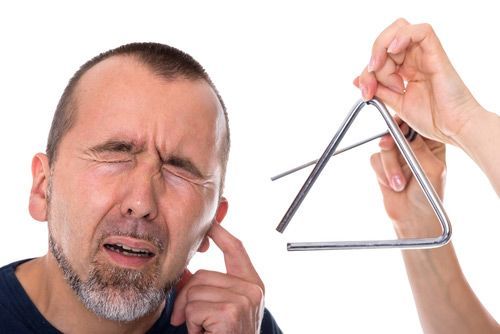Why do I have tinnitus?
The sensation of ringing or buzzing sounds in your ears is known as tinnitus (pronounced ‘tin-ni-tus’ or ‘ti-nigh-tus’).
For most people tinnitus occurs sporadically and for a short time only, but for some people, tinnitus becomes a constant distressing noise source that won’t leave them alone.
Causes of Tinnitus
Tinnitus is generally a symptom that something in wrong in your ears and is often referred to as a ‘body noise’. It could be that your auditory system has been exposed to excessive noise, or has been damaged in some way. This leads to the hair cells in your ears becoming ‘stressed’. It could also indicate you have a medical problem that needs to be addressed. Common causes of tinnitus include excess wax in your ear canal, pressure in your middle ear, noise induced hearing loss, jaw misalignment, ototoxic medications, disease (such as Meniere’s disease or otosclerosis) or an acoustic neuroma. If you have tinnitus you should consult a medical professional to determine what is causing your tinnitus and if it can be medically treated.
For some people, tinnitus can’t be medically treated and becomes so severe it causes distress, depression, poor concentration, loss of sleep and other negative responses associated with the tinnitus noise. This becomes a vicious cycle, with the auditory system becoming more stressed from the disturbing nature of the noise. The brain learns to fear the noise and sees it as ‘dangerous’ and therefore keeps listening for it. But don’t despair, there is help. Once it has been determined that you don’t require medical treatment, you should visit a Hearing Healthcare Professional who specialises in tinnitus treatment.
Tinnitus and Hearing Loss
Approximately 50% of people who have hearing loss, will also experience tinnitus to some degree. Hearing aids can help alleviate tinnitus by taking away the focus from the noise and put your attention on other more meaningful sounds. Most Audiologists and Audiometrists are trained in fitting hearing aids that can assist with tinnitus. Hearing aids can help in a number of ways:
- When there is a hearing deficit that is unaided, we strain to hear. This added effort puts stress on our auditory system and this stress can exacerbate the tinnitus sounds. Wearing a hearing aid takes away the effort and strain from our hearing system, reducing the stress, and therefore the tinnitus.
- Sometimes, amplification with a hearing aid isn’t enough. Nowadays, many hearing aids have dedicated ‘tinnitus programs’ which provide various sounds to hear alongside your tinnitus. Listening to these sounds provides a two-fold therapy: firstly it gives your ears something else to listen to; secondly your brain will acclimatise to this sound, learning it is not ‘dangerous’. Your brain will then eventually acknowledge that your tinnitus sound is also not ‘dangerous’ and will habituate to the noise. This means your brain will learn to ignore the noise and it will drop to a level that isn’t bothersome, or may even disappear completely.
Tinnitus Maskers
There are also other ‘sound generation’ devices (sometimes called ‘tinnitus maskers’) that can help alleviate the tinnitus noise, particularly for those whose hearing hasn’t deteriorated. These include smartphone apps, noise generators and fans that produce non-descript noise.
Once you have habituated to your tinnitus you should notice an improvement in your stress and anxiety levels. Your sleep should improve and you will feel the tinnitus noise is having less of a negative impact on your life.
So if you suffer from tinnitus that is causing you undo stress, visit your doctor and find the best avenue of treatment to help alleviate the anxiety associated with the noise. Help is out there and your tinnitus sounds, and the stress associated with it, can be reduced.
